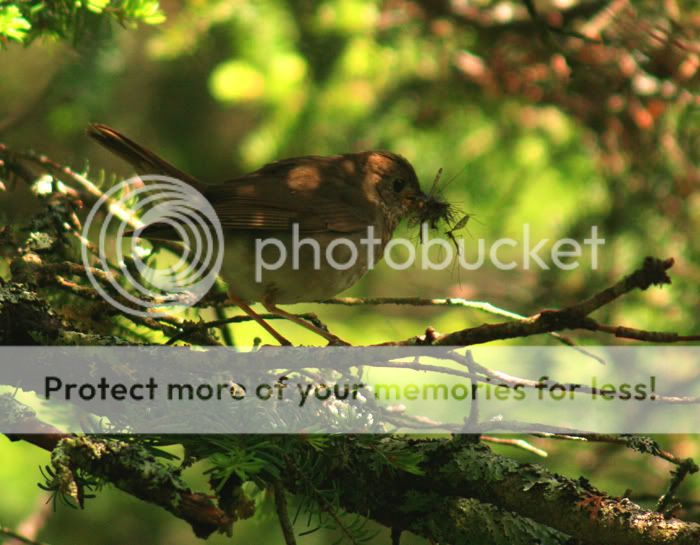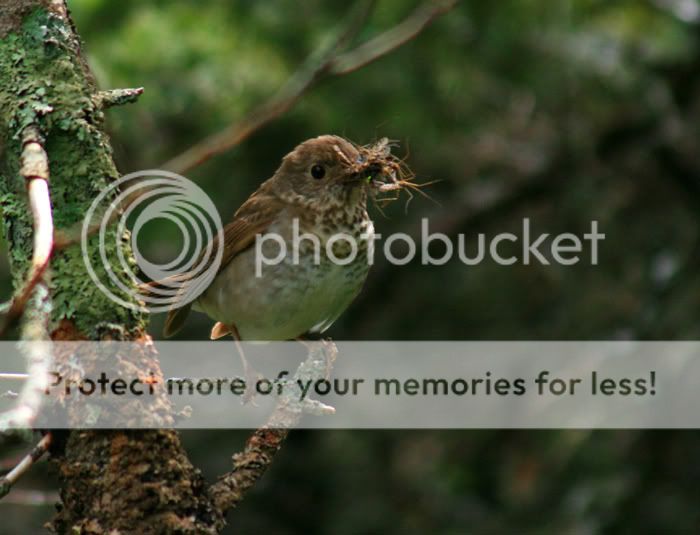forestgnome
New member
Could we please get comments from any of our birders on what was happening with this BT, high on the Beaver Brook Trail on Sunday. I heard only call, which was quite varied, but no song. Is it a female? She kept gathering bugs, which I think are mosquitoes, then disappearing into a particular clump of thick spruce/fir and reappearing to gather more. Feeding babies?


This was in the exact same spot along the trail where I saw a few BTs last summer.


This was in the exact same spot along the trail where I saw a few BTs last summer.
